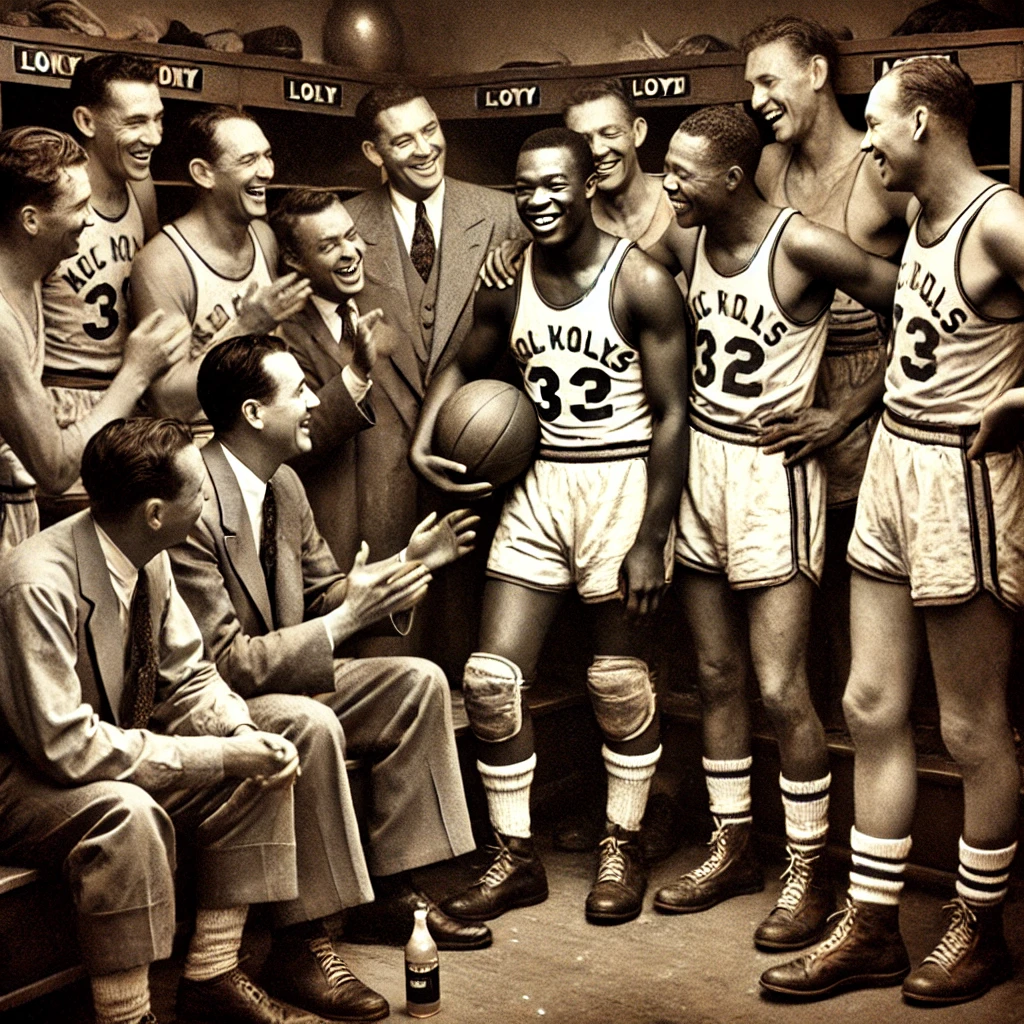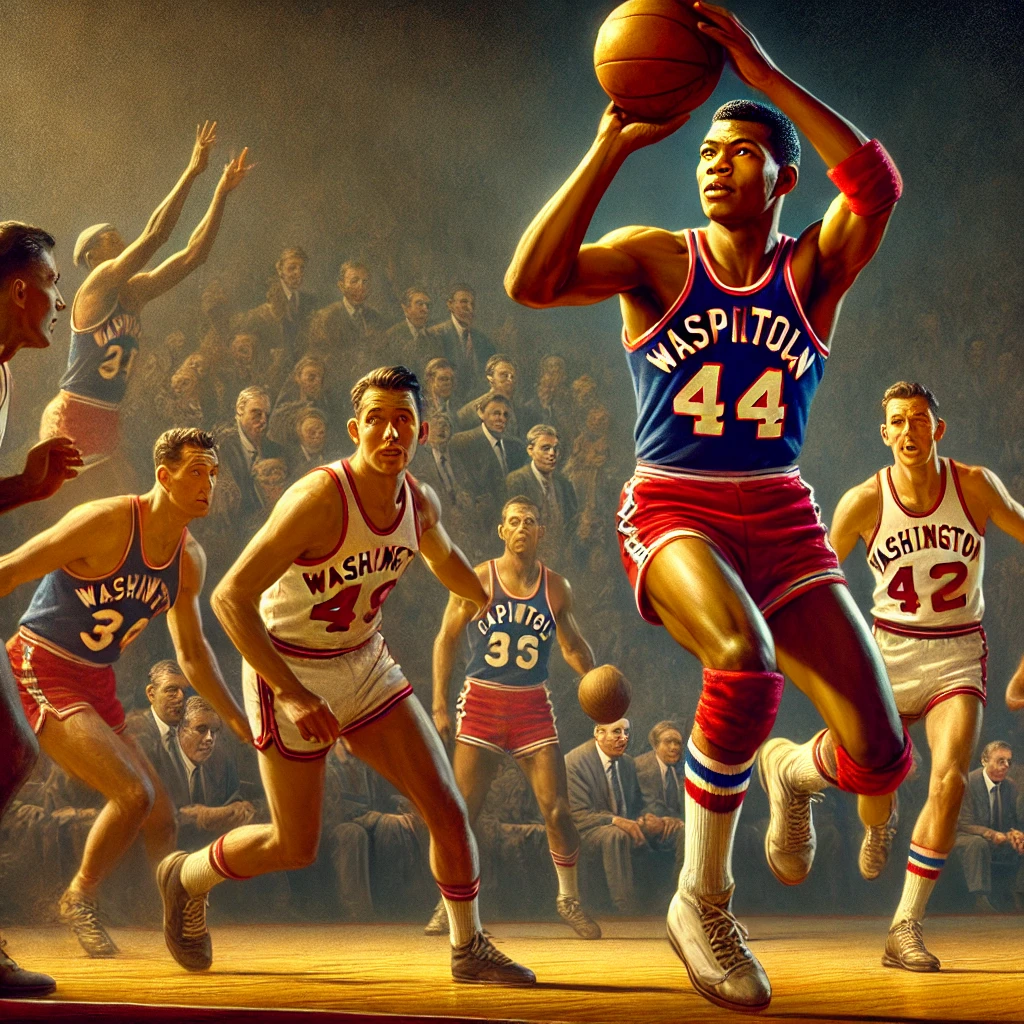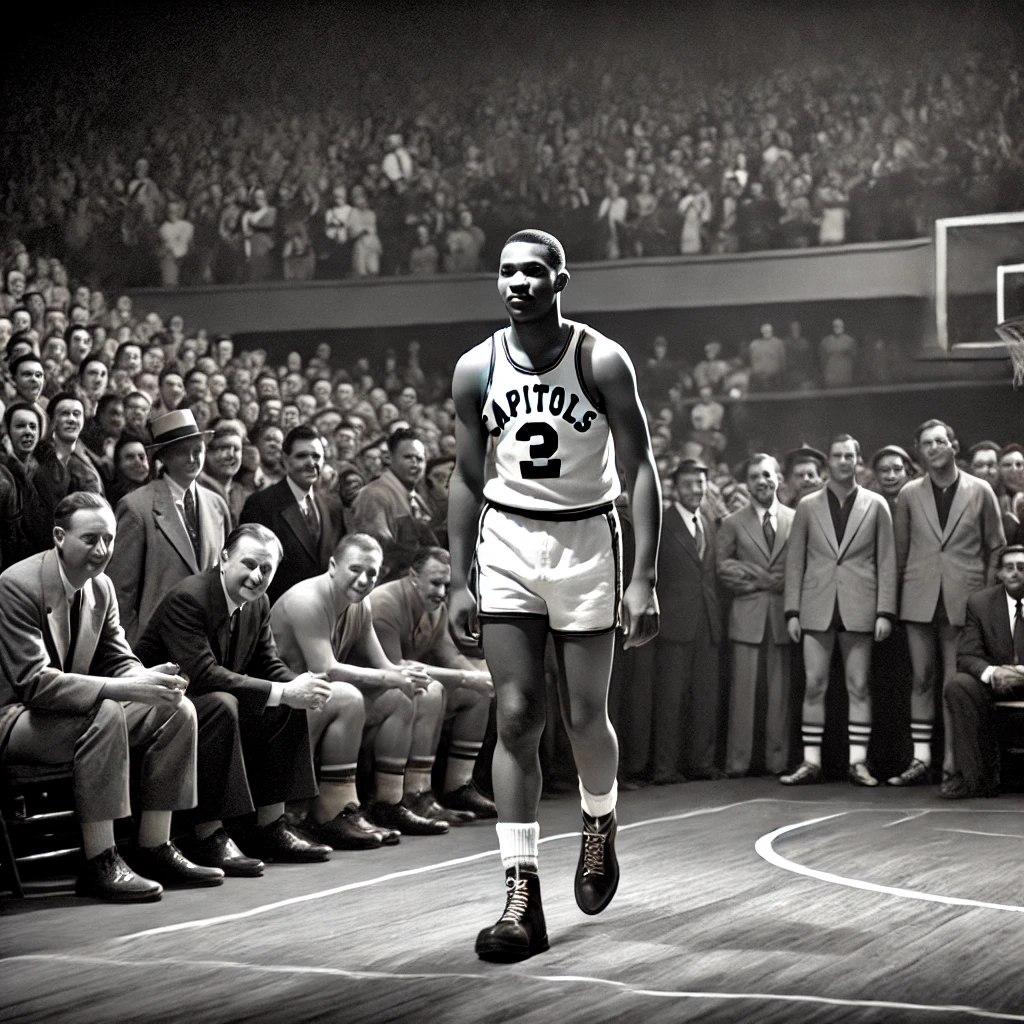On October 31, 1950, Earl Lloyd made history by becoming the first Black player to take the court in the National Basketball Association (NBA). His debut marked a significant moment in sports and American history, symbolizing the gradual but pivotal shift toward racial integration in professional athletics. Lloyd’s journey to the NBA not only transformed the landscape of basketball but also paved the way for future generations of Black athletes.

A Historic Journey to the NBA
Earl Lloyd was born on April 2, 1928, in Alexandria, Virginia. He displayed a talent for basketball early on, excelling in high school and later playing at West Virginia University. During his time in college, Lloyd gained recognition for his skills and was known for his athleticism and versatility on the court. In 1950, he was drafted by the Washington Capitals, making him one of the first Black players in the NBA.
Lloyd’s journey to the NBA coincided with a time of significant social change in the United States. The Civil Rights Movement was gaining momentum, challenging the systemic racism that pervaded American society. Lloyd’s entry into the league not only represented a personal achievement but also resonated with a broader cultural shift toward inclusion and equality in sports and beyond.

The Historic Debut
Lloyd made his NBA debut on October 31, 1950, in a game against the New York Knicks. While his first game did not garner widespread attention at the time, it was a groundbreaking moment in sports history. He played alongside his teammates, including fellow players who welcomed him into the league. Despite facing racial prejudice and challenges, Lloyd remained focused on his goal of succeeding as a professional athlete.
Throughout his rookie season, Lloyd proved himself as a talented player, contributing to his team’s efforts and earning respect from fans and peers alike. His presence in the NBA helped to break down barriers, demonstrating that talent and dedication could transcend racial boundaries. Lloyd’s debut set a precedent for future Black players, opening doors for others to follow in his footsteps.
Impact on the NBA and Society
Earl Lloyd’s historic debut had a profound impact not only on the NBA but also on American society as a whole. His achievements paved the way for other Black athletes, including legends like Bill Russell, Wilt Chamberlain, and Oscar Robertson, who would later dominate the league. The integration of the NBA mirrored the larger societal changes taking place in America, reflecting the ongoing struggle for civil rights and equality.

As more Black players entered the NBA, they brought diverse perspectives and talents, enriching the game and expanding its appeal. Lloyd’s contributions to basketball extended beyond his playing career; he became a role model for aspiring athletes and an advocate for inclusion and diversity in sports. His journey emphasized the importance of representation and the need for equality in professional athletics.
A Lasting Legacy
Earl Lloyd’s legacy endures as a symbol of progress and resilience in the face of adversity. His groundbreaking achievement as the first Black player in the NBA opened doors for countless athletes who followed. Lloyd’s story serves as a reminder of the power of perseverance and the impact that individuals can have in challenging the status quo.
In recognition of his contributions, Lloyd was inducted into the Naismith Memorial Basketball Hall of Fame in 2003, solidifying his place in basketball history. His achievements continue to inspire future generations of players and fans, serving as a testament to the ongoing fight for equality and justice in sports.
On October 31, 1950, Earl Lloyd’s debut as the first Black player in the NBA marked a pivotal moment in sports and social history. His journey from humble beginnings to breaking barriers in professional basketball exemplifies the power of determination and the importance of representation. As we reflect on Lloyd’s legacy, we celebrate not only his contributions to the game but also the broader impact he had on society. Earl Lloyd’s story is a powerful reminder that progress is often forged through courage and resilience, inspiring us to continue striving for equality and justice in all aspects of life.
